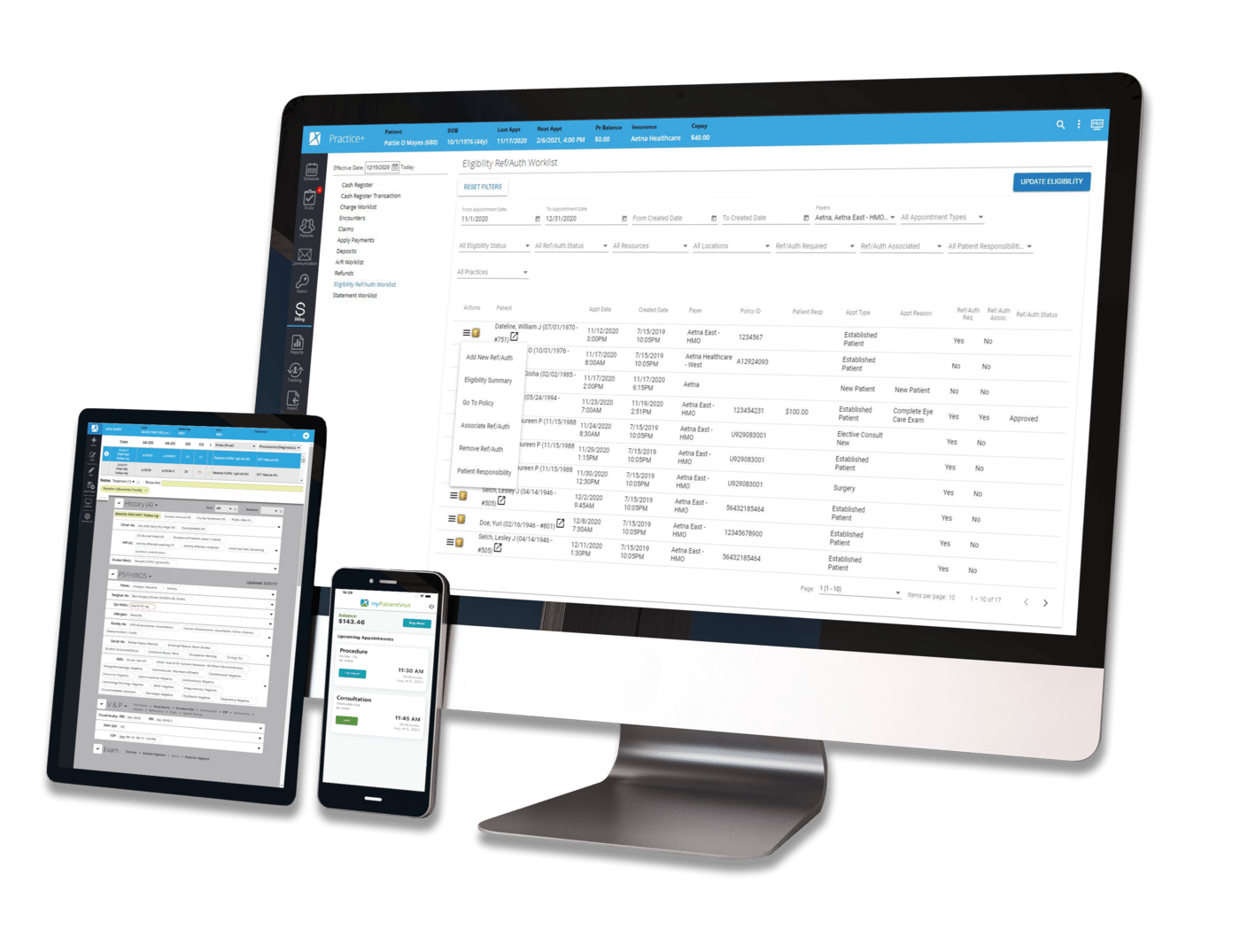Latest Articles
The latest news and information regarding electronic medical records, practice management software, HIPAA, and security from Nextech.

By:
Nextech
March 29th, 2024
To encourage medical providers to use electronic health record (EHR) systems, the U.S. government has linked their use to Medicare reimbursement, with penalties taking effect in 2024 for providers not using the technology. But avoiding penalties is not the most compelling reason to use an EHR. The greatest benefits of EHR systems are an improved patient experience and a more profitable practice.

By:
Nextech
February 19th, 2024
It is estimated that every day the average adult makes about 35,000 remotely conscious decisions each day.1 Some decisions are big. Others are small and almost done subconsciously or out of habit. The decision to have cosmetic surgery or LASIK is a big one and can have life-changing outcomes. It’s important for practices to understand that all along a patient’s journey with you and your team, they are making decisions. So, how can you help them decide they want to move forward with the treatment, procedure, or surgery and want you to help them?


By:
Nextech
January 11th, 2024
From the moment you engage with Nextech throughout your entire customer journey, we are deeply committed to your success. As part of our efforts to help your practice truly thrive, we provide comprehensive and continual training. Nextech is the only solution on the market that has a proven role-based, user certification process for EHR/PM software. When you complete a course on Nextech Academy, you earn credentials in the form of a badge that you can display on your LinkedIn profile. Badges are issued through digital credential provider Credly. After completing a course and earning a badge, check your inbox for an email from Credly to accept your new certification.

Patient Payments | Patient Care | Technology & Innovation | Payments
By:
Nextech
December 1st, 2023
Technology has advanced at an accelerated speed over the past 20 years. The internet powered up in 1983, in 1992 we saw the first smartphones, and in 1998 Google started its journey to becoming both noun and verb. And now as we witness the emergence of artificial intelligence, we can only imagine how our lives — and work — will change in the next two decades.

By:
Nextech
October 6th, 2023
The American Academy of Ophthalmology (AAO) and the American Society of Cataract and Refractive Surgery (ASCRS) called for immediate intervention to address concerns with the Routine Cataract Removal with Intraocular Lens (IOL) Implantation episode-based cost measure in a Sept. 26 letter (PDF) to the Centers for Medicare & Medicaid Services (CMS). Upon conducting research with its members, the AAO has uncovered discrepancies in the patient-level data files that arise when performing second eye cataract surgery within 31 to 90 days after the initial surgery. These errors pose a potential threat to the Merit-Based Incentive Payment System (MIPS) score, potentially leading to a negative payment adjustment in 2024.

By:
Nextech
August 14th, 2023
While the use of Electronic Health Records (EHR) in the healthcare industry has skyrocketed over the last decade, there are some who still prefer to continue using purely paper based records in their practices. Most of these holdouts tend to view EHRs negatively, as unreliable, too expensive, or too complicated, and so have chosen to stick with outdated technology, and by doing so, risk stranding themselves on “paper islands.” This article has been updated since its original publish date of March 23, 2015.

By:
Nextech
May 17th, 2023
Many factors influence a practice's ability to get paid on time. For example, fewer patients are paying their responsibility or even choosing not to have elective treatments. Other uncontrollable influences abound, including inflation, workforce instability, and higher deductibles.

Plastic Surgery | EHR | ASAPS | PM | Events & Trade Shows | Aesthetics
By:
Nextech
April 6th, 2023
Pssst…want to know a secret? Team Nextech has been singing Will Smith’s hit 1997 song “Miami” non-stop since planning for The Aesthetics Meeting 2023 commenced. Now that that cat is out of the bag, all we have to say is — watch out Miami, Nextech’s bringing the heat.